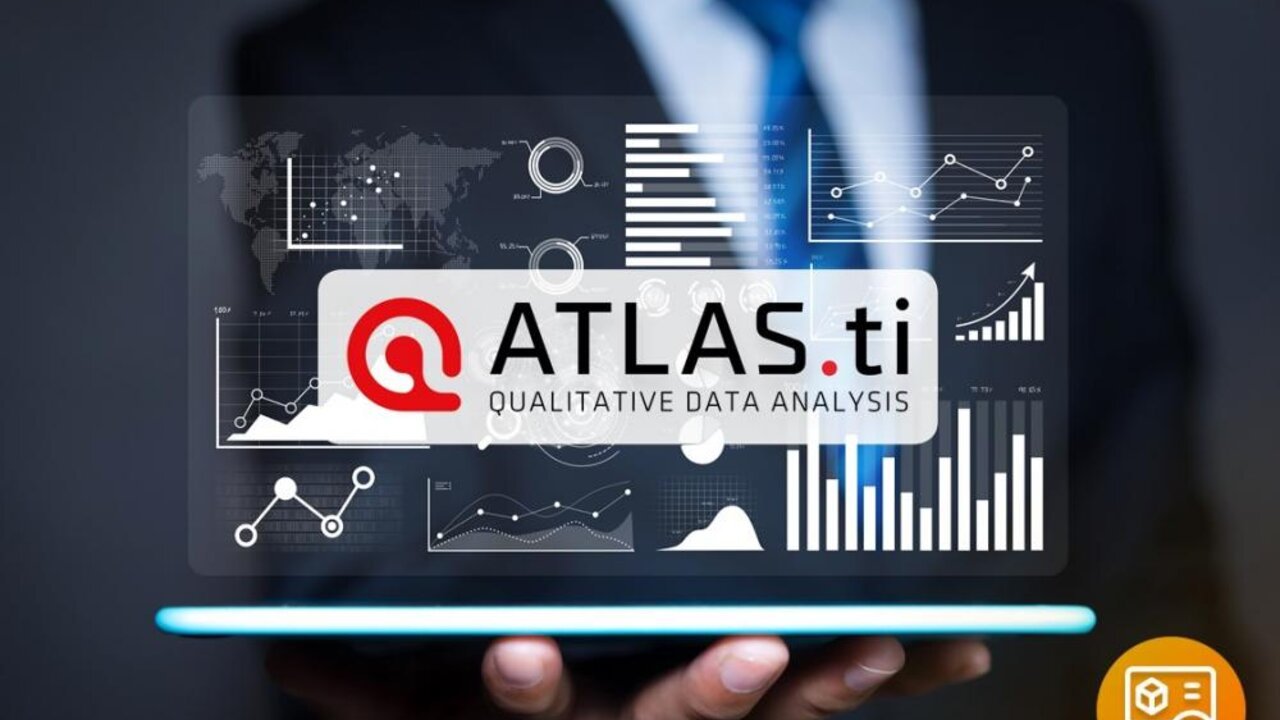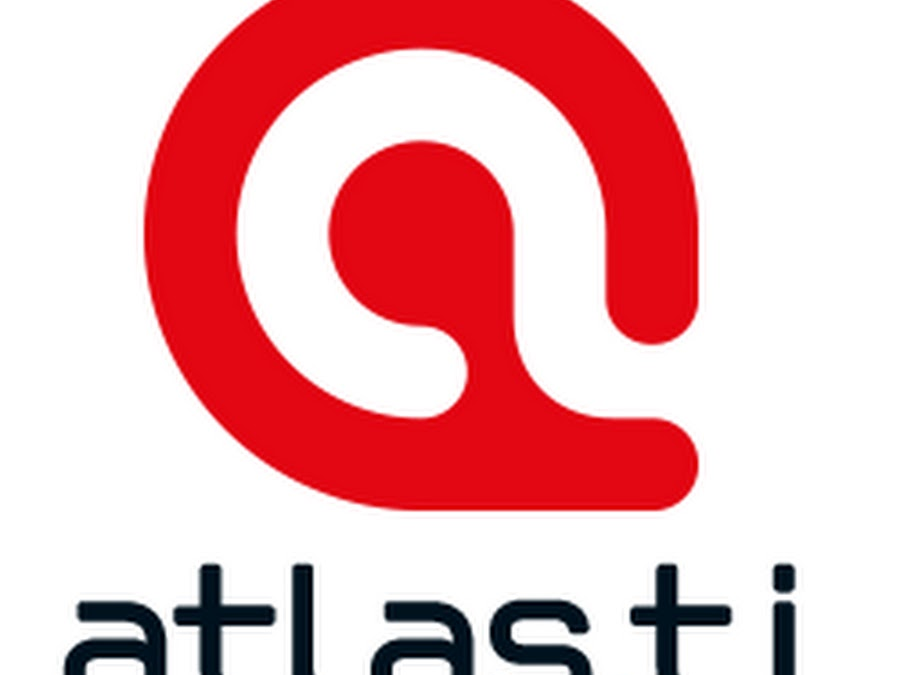
ATLAS.ti Overview
ATLAS.ti is a robust qualitative data analysis software designed to assist researchers, academics, and professionals in analyzing and interpreting complex datasets. It offers a comprehensive suite of tools tailored specifically for qualitative research, allowing users to manage, code, analyze, and visualize various types of data, including text, images, audio, and video.
Key features of ATLAS.ti include:
- Data Organization: Users can import and organize their qualitative data within the software, making it easier to manage and access large datasets.
- Coding: ATLAS.ti facilitates the process of coding qualitative data by allowing users to assign labels or “codes” to specific segments of text, images, or multimedia files. This helps researchers identify patterns, themes, and relationships within the data.
- Analysis: The software offers a range of analytical tools to help users explore and interpret their data. This includes features such as query tools, code frequencies, and code co-occurrence analysis, which can provide insights into the content and structure of the dataset.
- Visualization: ATLAS.ti enables users to visualize their data in various ways, such as through network diagrams, word clouds, or concept maps. These visualizations can help researchers identify patterns and connections that may not be immediately apparent from the raw data.
- Team Collaboration: The software supports collaborative research projects by allowing multiple users to work on the same dataset simultaneously. It offers features for sharing data, coding, and annotations, as well as tools for tracking changes and managing project versions.
ATLAS.ti Quality
- Feature Richness: ATLAS.ti offers a comprehensive set of features tailored specifically for qualitative research. From data organization to analysis and visualization, the software provides a wide range of tools to assist researchers in exploring and interpreting their data effectively.
- Reliability and Stability: ATLAS.ti is known for its reliability and stability. The software undergoes rigorous testing and development processes to ensure that it performs consistently and without errors, even when handling large and complex datasets.
- Flexibility and Customization: One of the strengths of ATLAS.ti is its flexibility and customization options. Users can tailor the software to their specific research needs, whether it involves coding methodologies, analysis techniques, or visualization preferences.
ATLAS.ti Customer Services
- Technical Support: ATLAS.ti offers responsive and helpful technical support to assist users with any software-related issues or questions they may encounter. Users can reach out to the support team via email, phone, or online chat for prompt assistance.
- Training and Resources: The company provides a variety of training options and resources to help users learn how to use ATLAS.ti effectively. This includes online tutorials, video demonstrations, user manuals, and webinars covering various aspects of the software’s functionality.
- Community Forums: ATLAS.ti fosters a vibrant user community where users can connect with peers, share tips and best practices, and seek advice on using the software. The community forums provide a valuable resource for users to learn from each other and get support from experienced users and ATLAS.ti staff.
- Consulting Services: For users who require more personalized assistance or guidance with their qualitative research projects, ATLAS.ti offers consulting services. These services may include one-on-one coaching, project-specific support, or customized training sessions tailored to the user’s needs.

ATLAS.ti Benefits, Advantages And Features
- Comprehensive Data Analysis: ATLAS.ti provides a comprehensive platform for analyzing qualitative data, including text, images, audio, and video. Researchers can explore their data thoroughly, uncovering patterns, themes, and relationships.
- Efficient Coding: The software streamlines the coding process, allowing researchers to label and categorize segments of data quickly and accurately. This helps organize large datasets and facilitates in-depth analysis.
- Flexibility: ATLAS.ti offers flexibility in data organization and analysis. Users can customize coding schemes, create hierarchies, and adapt methodologies to suit their research objectives and preferences.
- Visualization Tools: The software offers various visualization tools, such as network diagrams, word clouds, and concept maps, to help researchers visually represent their data and gain insights into complex relationships.
- Team Collaboration: ATLAS.ti supports collaboration among team members working on the same project. Users can share data, coding, and annotations, facilitating communication and coordination within research teams.
- Powerful Querying: Researchers can use advanced query tools to search and retrieve specific segments of data based on criteria such as codes, memos, or annotations. This enables targeted analysis and comparison across different data segments.
- Document Management: ATLAS.ti helps researchers manage and organize their documents efficiently, with features for importing, linking, and annotating text documents, PDFs, and other file types.
- Integration with Other Software: The software integrates seamlessly with other tools commonly used in qualitative research, such as citation management software and transcription tools, enhancing workflow efficiency.
Experts Of ATLAS.ti
- Powerful qualitative data analysis capabilities for coding, organizing, and analyzing large datasets.
- Offers a wide range of visualization tools for interpreting and presenting research findings.
- Enables collaborative work through cloud-based storage and sharing features.
- Provides comprehensive support and resources for users, including tutorials and webinars.
- Offers flexible licensing options suitable for individual researchers or large organizations.

ATLAS.ti Conclusion
In conclusion, ATLAS.ti stands as a comprehensive and powerful tool for qualitative data analysis, offering researchers across various disciplines a multitude of benefits and advantages. With its efficient coding capabilities, flexible data organization options, and advanced analysis features, ATLAS.ti empowers researchers to delve deep into their data, uncovering insights and patterns that contribute to the advancement of knowledge in their respective fields.
The software’s visualization tools enable researchers to represent complex data relationships visually, facilitating a deeper understanding of their findings. Furthermore, ATLAS.ti’s support for team collaboration fosters effective communication and coordination among research teams, enhancing productivity and efficiency.
ATLAS.ti’s commitment to continuous development ensures that users have access to the latest features and improvements, further enhancing their research capabilities. Combined with its responsive customer support, comprehensive training resources, and seamless integration with other software tools, ATLAS.ti emerges as a trusted partner for researchers seeking to conduct rigorous qualitative analysis and produce impactful research outcomes.

